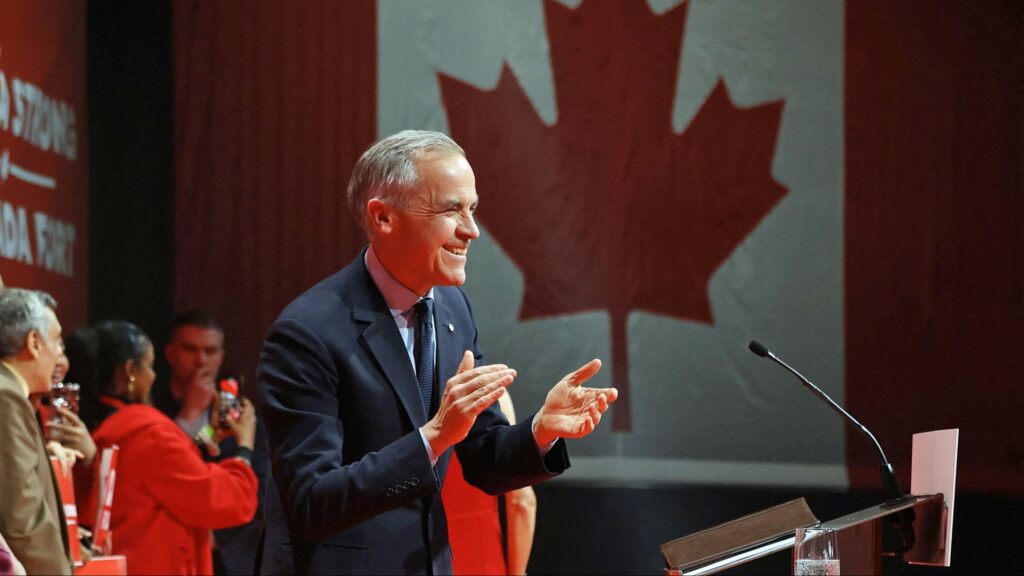How can you understand Canadian culture when you relocate to Canada to work? Have you just moved to Canada and are about to start work? Or are you about to make the move to begin your new role? What are the changes you are going to encounter, and what have you already noticed as someone from another country living and working in Canada?
Moving to a new country can be both exciting and daunting, especially when it comes to adapting to a new work environment.
Each country has its own unique professional culture and expectations, and Canada and Canadian culture is no exception. As one of the most multicultural nations in the world, Canada welcomes people from all backgrounds, yet it has distinct customs and approaches that shape its workplaces.

Canadian Culture – how to navigate Work Life Changes
Introduction
This article explores the changes you might experience in your work life after moving to Canada, with particular attention to time management, language, work-life balance, culture, and socialising. Drawing from real-life stories of people who have made the move, we aim to help you understand and adapt to these changes for a successful and fulfilling working life in Canada. With the right mindset and preparation, you can not only adjust but truly thrive in your new environment.
Aboriginal Peoples
“Aboriginal peoples” is a collective term encompassing First Nations, Inuit, and Métis peoples. These are the three groups recognized as Indigenous to Canada.
Recognition of these people and reflection on past discrimination is a key topic in Canada. The education and awareness that the federal and provincial governments have initiated in recent years will be obvious to you in the workplace and in everyday life.

The Different Areas of Canada
Canada is the second largest country in the world by land area, and its regions are incredibly diverse in both culture and geography. The country is divided into ten provinces and three territories, each with its own local character, industries, and even climate. For example, British Columbia on the west coast has a milder climate and a thriving technology industry, while Alberta is known for its oil and gas sector. Ontario is home to Canada’s largest city, Toronto, and is a hub for finance, education, and commerce. Toronto has cold winters and warm, humid summers. Meanwhile, Quebec is the heart of French-speaking Canada and has a distinct cultural identity rooted in its history and language.
English speaking and French speaking areas as part of Canadian culture
One major distinction in Canada is between the English speaking and French speaking regions. While the majority of Canadians speak English, a significant portion of the population, particularly in Quebec, speaks French as their first language. This linguistic divide brings with it some cultural differences as well. For instance, in Quebec, business communication may be more formal and hierarchical compared to the more casual tone often found in English-speaking provinces. Understanding and respecting these regional differences can help you better integrate into your workplace. Wherever you live in Canada, it is useful to know where in Canada your colleagues come from and how language may have influenced them.
In addition to language, work expectations and social behaviours can also differ. In Quebec, public holidays differ slightly, and there may be unique labour laws that affect working hours and leave entitlements. Moreover, the culture in French-speaking regions often places a strong emphasis on tradition and community, which may influence the way people interact in professional settings. Meanwhile, cities like Vancouver and Toronto are known for their international business environments and tend to adopt a more globalised approach to work culture.
First Impressions of Canada and Canadian culture
A lot of people relocating to Canada first comment on the weather. The climate can be a shock, especially for those coming from warmer countries. Winters in cities like Winnipeg or Edmonton can be particularly harsh, with temperatures plunging well below freezing and heavy snowfalls being a regular occurrence. Coastal cities like Vancouver, however, have milder, wetter winters and more temperate summers. The vast climate differences across the country often require new arrivals to purchase completely different wardrobes and adjust their daily routines accordingly.
Another striking feature is the sense of space. Whether it is the wide roads, large homes, or vast natural landscapes, newcomers often remark on how open and expansive everything feels. In contrast to the densely populated cities of Europe or Asia, many Canadian cities feel less crowded, and there is a general sense of calm and orderliness. This sense of space extends into public transport, parks, and even supermarkets, all of which contribute to a more relaxed pace of life.
However once you start working in Canada, you will notice a number of other differences, many of which are more subtle than the weather and the space. For example, the level of formality in the workplace may vary depending on the industry and region. The general attitude is friendly and respectful, but not overly hierarchical. Titles are often dropped in favour of first names, even when speaking to senior managers.
So, how do you find your feet in a new workplace culture that operates quite differently? This article looks at just that and focuses on key areas of differences in Canadian culture. Understanding them early on will help you make sense of your new environment and adapt your style to flourish in the Canadian culture and workplace.

How to adjust and to understand Canadian Culture
Time and Timeliness
Punctuality is highly valued in Canada. Being on time is seen as a sign of respect for others’ schedules and is taken seriously in professional settings. Meetings generally start promptly, and being late without notice is considered unprofessional. If you have come from a culture where time is viewed more flexibly, this may require a conscious adjustment.
An example
For instance, Priya, who moved to Toronto from Mumbai, shared how she had to adapt her habits to fit into the Canadian culture and work environment.
“Back home, arriving ten minutes late was quite normal. But here, I quickly learned that even being five minutes late could raise eyebrows. I now make sure I arrive a little early just to be safe.”
Time management is also crucial when it comes to delivering projects and meeting deadlines. Canadian professionals typically plan their tasks carefully and communicate any delays in advance. You may notice a strong emphasis on calendar use, scheduled appointments, and detailed agendas. Respecting these practices will help you earn trust and demonstrate professionalism.
Language Differences When Speaking English or French
Even if you are fluent in English or French, you may find that the way the language is used in Canada is slightly different. Canadians tend to speak politely and use a lot of softeners such as “please,” “thank you,” and “sorry.” This polite and indirect style can take a while to understand completely. In written communication, especially emails, there is often a friendly tone, with greetings and signoffs that reflect courtesy and respect.
For French speakers, Canadian French includes expressions and vocabulary that are different from those used in France or other French-speaking countries. It is helpful to familiarise yourself with local idioms and expressions to avoid misunderstandings. Workplace jargon may also differ between the English and French-speaking regions, so taking time to learn the regional terminology will go a long way in improving communication.
An example
Ahmed, who moved from Paris to Montreal, said,
“I was confident in my French, but I still found it hard at first to understand some of the local expressions. Over time, I picked them up, and now I even use them myself!”
His story highlights the importance of patience and adaptability when learning the nuances of local language usage.
Work Life Balance in Canadian Culture
Work life balance is taken seriously in Canada. Employees are encouraged to take their annual leave, and there is a general understanding and respect for free time. While this may vary depending on the industry, in general, Canadian employers recognise the importance of maintaining a healthy balance between work and personal life. However, in reality, long hours are expected in certain roles and at certain times.
An example
Fatima, who moved from Dubai to Vancouver, was surprised by this shift.
“In my previous job, staying late at the office was the norm and even expected. Here, my manager actually encouraged me to leave on time and take regular breaks. It was refreshing and helped me be more productive.”
In Canada, it is common for employees to take advantage of flexible work options such as remote work, compressed workweeks, or flexible start times. These arrangements are designed to support family commitments and personal well-being. Additionally, there is growing awareness of mental health in the workplace, with many companies offering wellness programmes and employee assistance services.
Public holidays and statutory leave are also protected by provincial labour laws, and employers generally adhere strictly to these regulations. Understanding your entitlements and taking the time to rest will contribute to your overall well-being and help you maintain motivation at work.
Canadian culture at Work
Canadian workplaces are often more egalitarian and collaborative than those in many other countries. Managers are approachable and often work alongside their teams. Decision-making tends to be more democratic, with input from various team members. This inclusive approach is designed to foster innovation and a sense of shared responsibility.
This contrasts with cultures where hierarchy is more pronounced, and decisions are made solely by senior management. In Canada, employees are encouraged to share their ideas and participate actively in discussions. Meetings may involve brainstorming sessions and open dialogue where everyone’s contribution is valued. There will not usually be an order as to who speaks first, and then second, in a meeting.
An example
Samuel, who moved from Lagos to Calgary, found this approach very different from what he was used to.
“Back home, the manager’s word was final. Here, I was asked for my opinion during team meetings, and it took me a while to get used to that. Now I feel more involved and valued.”
Another feature of Canadian work culture is the emphasis on accountability. Employees are expected to take ownership of their tasks and follow through on commitments. Clear communication, transparency, and a willingness to collaborate are key traits that are highly regarded.
Socialising as part of Canadian Culture
Socialising at work in Canada can be more subtle and low-key compared to other cultures. Colleagues may not socialise extensively outside work, especially at the beginning, but this does not mean they are unfriendly. Canadians may take time to warm up, but once a connection is established, they are generally kind and supportive.
Team lunches, coffee breaks, and seasonal celebrations like holiday parties are common ways to connect with colleagues. It is a good idea to participate in these events to build rapport. Attending informal gatherings such as charity runs or volunteering events organised by your company can also help you integrate into the team.
An example
For example, Maria, who moved from Mexico City to Ottawa, initially found it challenging to make friends at work.
“People were polite but reserved. I started joining in on Friday coffee breaks and even organised a small potluck. That helped me break the ice and build stronger relationships.”
In addition to workplace events, joining professional associations or networking groups related to your field can be an excellent way to meet new people and expand your professional circle. Many Canadian cities have local chapters of global organisations that offer regular meetups, webinars, and workshops.

Conclusion and Key Takeaways about Canadian Culture
Adjusting to a new work culture can take time, but understanding the core differences in workplace norms can make the transition smoother. Canada and Canadian culture offers a welcoming environment for newcomers, with a strong emphasis on politeness, punctuality, and collaboration. While there may be an initial period of cultural adjustment, many people find that they grow to appreciate the Canadian approach to work and life.
Here are the six key takeaways.
Understanding of time in Canadian culture
Be punctual and respectful of others’ time and visibly show this. Arriving early or on time for meetings and appointments shows professionalism in Canada.
Trust culturally
Trust and keeping ones promises and commitments is key in the Canadian culture. If you are going to be late or can no longer fulfil an obligation, you will need to explain and give reasons.
Language culturally
Learn the local expressions and nuances of English or French used in your region. Language is more than grammar, it is a reflection of culture. So, even if you speak English or French (or both) well, ensure that you understand ‘Canadian English’ and ‘Canadian French.’
Canadian culture and work life balance
Embrace the emphasis on work-life balance as the Canadians do. Make time for rest and personal activities without feeling guilty. If you are responsible for a team, make sure your team have ample opportunities to create their own work life balance.
Team culture
Get involved in team discussions and be open to collaborative work. Your ideas matter and your contributions will be recognised. Don’t necessarily wait for more senior people to speak first.
Socialising as part of Canadian work culture
Participate in social activities to build connections with colleagues. A strong network can enrich your professional and personal life.
Good Luck
By staying open-minded and proactive, you can not only adjust to your new environment but also thrive in your Canadian workplace. Whether you have just arrived or are preparing to make the move, embracing these changes, and understanding Canadian culture will help you succeed and enjoy a more fulfilling work life in Canada.

Further reading
Work Life Changes from the US to the UK
Coming Home after being an Expat. What Now?
Intercultural Success Coaching and Training

Are you responsible for a global team or are you part of a global term? Is communication sometimes a challenge? Intercultural Success can support your leadership and personal challenges. Working with you and your team members to make global communication and cultural understanding easier and more successful.
We have decades of experience and have helped hundreds of leaders and managers across the world manage expatriation and repatriation challenges.
Contact us today to discuss your challenges.

